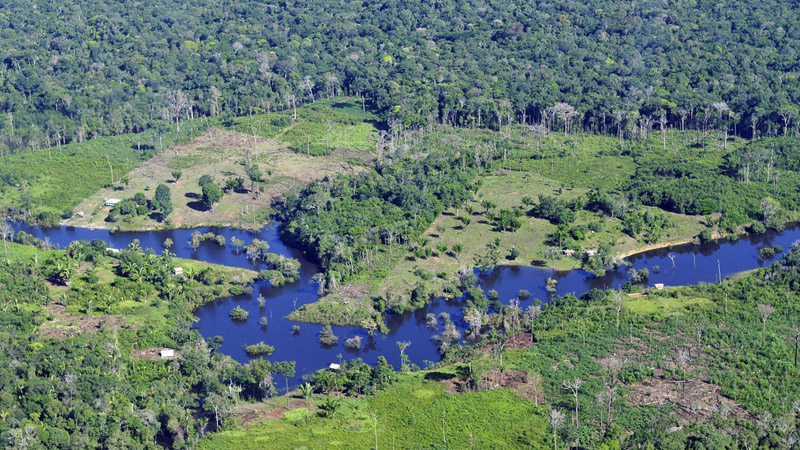For years, deforestation in Brazil was coupled with economic cycles. When the economy grew, the rates would increase.
This pattern was disrupted from 2005 onwards, when rates started to fall despite increased economic growth due to anti-deforestation policies put in place.
But the latest data shows an alarming trend. After a decade of progress on curbing forest loss, the deforestation rate is rising – in the teeth of economic recession.
Between August 2014 and July 2015, 6,207 square kilometres of forest was cut down, nearly a quarter more than the previous year. It is the highest level in four years, the National Institute for Space Research said.
It could be worse. Some policy and market initiatives are having a positive impact. R1.2 billion (US$380m) has been invested in around 80 sustainable development projects through the Amazon Fund. A moratorium on soya from plantations created by tree clearance celebrated its 10th anniversary last week. Big players have joined sustainable commodities initiatives efforts pushed by subnational and national authorities.
Still, something is going wrong. What is Brazil missing?
First, the government cut 72% of the budget for deforestation control between 2011 and 2014, leaving it to the Amazon Fund to bail out enforcement agencies. The implementation of the Forestry Code has been slow and driven by confusing signals by federal authorities. Incentives have not yet reached farmers and land users, while the implementation of compliance instruments has been repeatedly delayed.
Second, there is a disconnect between national policies and local action. The federal government leads on REDD+, a UN initiative to mobilise finance from rich countries for forest protection. Yet many responsibilities for forests are decentralised to state governments. A National REDD+ Strategy, released in late 2015, after the Paris Agreement was reached, had not a single word about responsibility and benefit sharing.
Third, the private sector has been treated as a problem, not part of the solution. The federal government has only accepted traditional overseas development aid to support forest protection. It has missed opportunities to attract investors into the Amazon region to sustainably develop its forests, fisheries, and agricultural potential.
Weekly briefing: Sign up for your essential climate politics update
Environment minister José Sarney Filho inherited most of these problems from his predecessor, who left in early 2016. But he has yet to give clear indications that he will correct this course.
Last week, his staff proposed further tightening federal control over REDD+. The proposal was rejected. Had it been passed, Brazil would be forever dependent on the federal government’s capacity to mobilise international aid for its environmental assets.
If Sarney Filho wants to consolidate progress in reducing deforestation, he needs to overhaul REDD+ so that states, indigenous people and private companies can be rewarded for getting results. Without their inclusion, the REDD+ national strategy is incomplete and therefore ineffective.
Sarney Filho should look at the Amazon Fund for testing new models of results-based payments and put his team to work towards more integration. He could start by listening to those who have designed and run subnational REDD+ systems.
Finally, if deforestation is not dealt in a daily basis by all governmental structures, the market signals will also weaken. The markets need a clear signal to invest and to sustain responsible practices. The government needs to have a clearer voice on the matter, as well as open ears to listen to what its partners have to share about delivering an inclusive, low deforestation future.
Natalie Unterstell is a former Brazilian climate negotiator and Louis Bacon Environmental Leadership fellow at the Harvard Kennedy School of Government.
Mariano Cenamo of IDESAM, Manaus and Alice Thuault of ICV, Cuiabá also contributed to this article.
